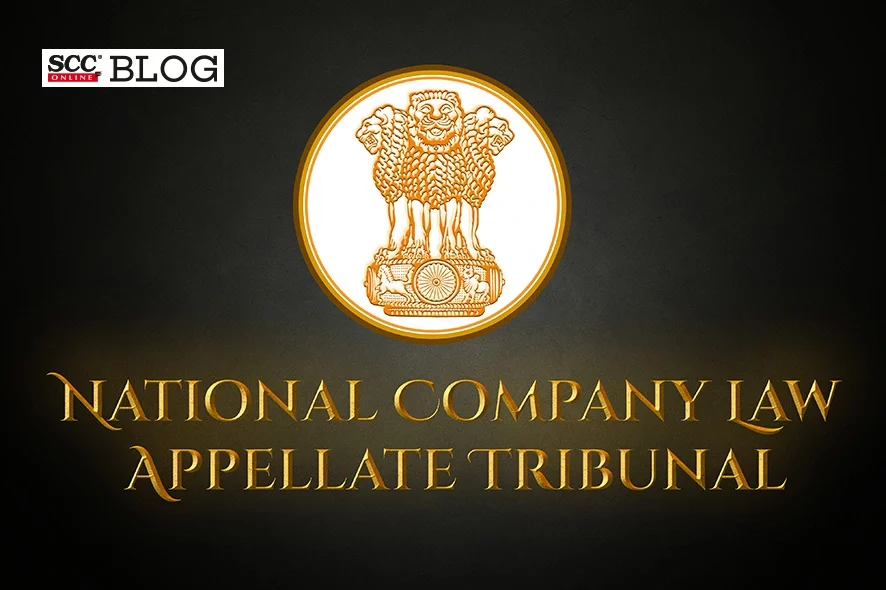National Company Law Appellate Tribunal, Chennai: A Division bench comprising of M. Venugopal, J., and Shreesha Merla* (Technical Member), held that at the stage of admission of application under S. 7 of the Insolvency and Bankruptcy Code, 2016 (IBC), the Adjudicating Authority only need to examined whether there is a Debt and Default not the exact ‘Quantum of Debt’.
Factual Matrix
In the instant matter, the respondent 1-Financial Creditor had provided Secured Cash Credit Facility of Rs. 14 Crores, prior to 1997 to the Corporate Debtor and further extended the Facility. The Financial Creditor called upon the Corporate Debtor to repay the loan amount and also issued a Legal Notice. On 14-01-2019, a Liquidator was appointed to recover the unpaid debts and settle the dues of several individual investors.
The Financial Creditor preferred an application under S. 7 of the IBC seeking to initiate Company Insolvency Resolution Process (CIRP) in respect of the Corporate Debtor. The Adjudicating Authority vide order dated 06-04-2021 admitted S. 7 application. Aggrieved by the impugned order passed by the Adjudicating Authority, the appellant (Promoter/Shareholder of the Corporate Debtor) preferred an appeal under S. before of the IPC, challenging the same.
Appellant’s Contention
The appellant contended that there is no failure on the part of the corporate debtor, and the financial creditor’s claims made before the deputy registrar of cooperative societies are disputed for a number of reasons. It was also contended that there was a dispute regarding reversal of interest waiver of 2012 and debiting interest and because of this the default amount of Rs. 12.09 Crore is erroneous. It was further contended that the dispute, if any, should have been dealt with by the authorities under the Karnataka Souharda Sahakari Act, 1997.
Respondent’s Contention
The Respondent contended that on cross-referencing the claim with the corporate debtor’s balance sheet, the claim for an amount of Rs. 7,75,52,320/- was tentatively accepted by the Corporate Debtor. It was contended that the Deputy Registrar of Co-operative Societies, Bangalore held that the Corporate Debtor is liable to pay Rs. 5,13,71,863/-. The respondent further contended that the Interim Resolution Professional had no other option but to file for the Liquidation as the plan approved by the Committee of Creditors (CoCs) was rejected by the Adjudicating Authority.
Moot Point
Whether the Adjudicating Authority was justified in admitting the S. 7 Application, filed by the Financial Creditor / Shree Aashraya Souhard Credit Society Ltd.?
Tribunal’s Observation
The NCLAT observed that the society served as a conduit for a large number of small investors to combine their money and meet the Corporate Debtor’s financial requirements and on the basis of the Investigation Report it is established that the loan received by the Corporate Debtor were in violation of Karnataka Souharda Sahakari Act, 1997.
The NCLAT relied upon Rajesh Kedia v. Phoenix ARC (P) Ltd., 2022 SCC OnLine NCLAT 147, and stated that “once the ‘threshold’ is crossed, it is not for the Adjudicating Authority to decide the exact ‘Quantum of Debt’, but what has to be examined is whether there is a ‘Debt’ and ‘Default’.”
While discussing the initiation of CIRP by Financial Creditor under S. 7(4) of the IBC, The NCLAT relied on Innoventive Industries Ltd. v. ICICI Bank, (2018) 1 SCC 407, where the Supreme Court observed that on receipt of application under S. 7(2) of the IBC, the Adjudicating Authority is required to ascertain existence of default from the records of Information Utility or on the basis of other evidence furnished by the Financial Creditor under S. 7(3) of the IBC and then under S. 7(5) of the IBC it is required to satisfy a) whether a default has occurred; b) whether the application is complete; and c) whether any disciplinary proceeding is against the proposed Insolvency Resolution Professional. “Once satisfied, it is required to admit the case but in case the Application is an incomplete application, the financial creditor is to be granted seven days’ time to complete the Application. However, in a case where there is no default or defects cannot be rectified, or the record enclosed is misleading, the Application has to be rejected.”
The NCLAT held that jurisdiction of the Adjudicating Authority cannot be challenged because the Deputy Registrar of Co-operative Societies, Bangalore had held that the Corporate Debtor is liable to pay a sum of Rs. 5,13,71,863/- towards principal and Rs. 1,67,86,388 towards interest.
NCLAT’s Verdict
While dismissing the present appeal, the NCLAT held that since there are both ‘debt’ and ‘default’ the Adjudicating Authority was well within their power to admit the application.
[Guruprasad V Hishobkar v. Shree Aashraya Souhard Credit Society Ltd., 2023 SCC OnLine NCLAT 299, order dated 02-06-2023]
*Judgment by Shreesha Merla (Technical Member)
Advocates who appeared in this case :
Dr. K.S. Ravichandran, Counsel for the Appellant;
Mr. S. Vivekanand, Counsel for the Respondent No. 1;
Mr. Chandramouli Prabhakar, Counsel for the Respondent No. 2.








After so many years of NCLT formation for the first time it has started to make sense.Poor quality of judge’s,non availability of staff and illiterate understanding of most of the authorities is the highlight so far.
Wrong judgment.